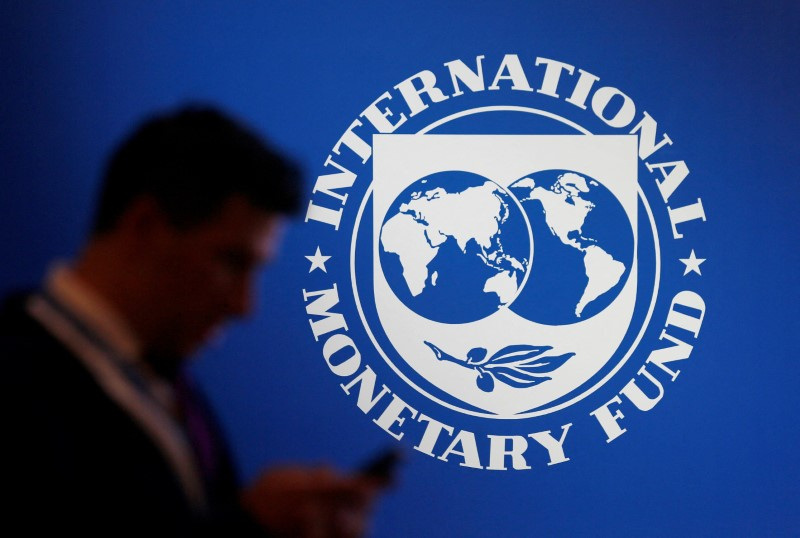By Jorgelina do Rosario and Andrea Shalal
LONDON/WASHINGTON (Reuters) -The International Monetary Fund's executive board, under pressure to provide emergency funding to countries facing war-induced food price shocks, reviewed a plan on Monday that would help Ukraine and other countries hit hard by Russia's war, sources familiar with the matter told Reuters.
Board members engaged with the plan, first reported by Reuters, at an informal board session.
Developed by IMF staff in recent months, it would allow the IMF to support countries struggling with budget problems because of the war, without imposing conditions required in a regular fund program, said the sources, who asked not to be named since the plan has not been formally approved.
Board members were generally supportive heading into the meeting, and a formal vote backing the measure is likely before the Fund's annual meetings in October, two of the sources said.
If approved, it would temporarily increase existing access limits and allow all member countries to borrow up to an additional 50% of their IMF quota under the IMF's Rapid Financing Instrument, while low-income countries could tap the Rapid Credit Facility, the sources said.
"The concept is simple, but it could help many countries," said one of the sources.
Masood Ahmed, a former IMF official who now heads the non-profit Center for Global Development think tank, welcomed the move and said the IMF existed precisely to help countries deal with the kind of balance of payments shock unleashed by the war.
"It's good news, and I'm glad they're doing it, but I wouldn't stop at that," Ahmed told Reuters.
SURGING FOOD PRICES
Food prices surged worldwide after the start of the war given blocked supply routes, sanctions and other trade restrictions, although a UN-brokered deal that allowed resumed exports of grain from Ukrainian ports last month has begun to help improve trade flows and lower prices in recent weeks.
The Washington-based lender projected in July that inflation posed a "clear risk" to current and future macroeconomic stability.
Many African countries and other poor nations suffering food shortages and acute hunger have clamored for increased funds, but it was not immediately clear how many countries would seek the additional financing aid.
"I don't think this is going to be big money here," Ahmed said, noting that countries that already had or were negotiating for an IMF program would not be able to apply.
That would rule out Egypt, for instance, which is in negotiations with the IMF for a larger program.
The new plan could offer some limited help to Ukraine, which has grown frustrated with delays in its push for a "full-fledged" financing package to keep the government running while fighting the first major war in Europe since World War Two. But Ukrainian officials say they need far more than the $1.4 billion than they could get through the RFI.
The IMF does not comment on informal board sessions.
An IMF spokesperson last week told Reuters the global lender "continues to closely engage with the Ukrainian authorities and is currently exploring all feasible options to provide further support to Ukraine in these challenging circumstances."
Ukraine's overseas creditors have backed a two-year freeze in payments on almost $20 billion in international bonds, but the country must make $635 million in principal payments on prior IMF loans beginning in mid-September.
The IMF in March approved $1.4 billion in emergency funding for Ukraine under the RFI instrument to help meet urgent spending needs and mitigate the impact of the war. Its economy is expected to contract by 35% this year.

Russia's war against Ukraine has altered global patterns of trade, production, and consumption of commodities in ways that will keep prices at historically high levels through the end of 2024, the World Bank reported in August. https://www.worldbank.org/en/topic/agriculture/brief/food-security-update
Food is the single largest category in inflation baskets - the selection of goods used to calculate the cost of living - in many developing nations, accounting for around half in countries like India or Pakistan and on average for some 40% in low-income countries, IMF data shows.